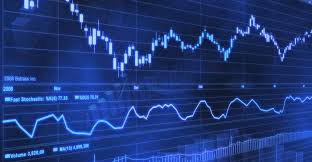In the dynamic world of trading, Contract for Difference (CFD) trading offers a unique platform for investors to tap into market movements without owning the underlying assets. However, the volatility and swift changes in CFD trading can be heavily influenced by political events. This article explores how political climates shape the cfd trading landscape, providing insights for both new and seasoned investors.
The Political Pulse in CFD Markets
Political events are like the wind, unpredictable but powerful, capable of shifting market trends at any moment. Elections, policy changes, or geopolitical tensions can dramatically affect market sentiments, leading to fluctuating prices in CFD markets. For instance, a presidential election often brings uncertainty, causing volatility as markets react to potential shifts in economic policies. Traders must stay informed, as these changes can either present lucrative opportunities or lead to unexpected losses.
Impact of Elections on CFD Trading
Elections, especially in major economies like the US, UK, or EU, can significantly impact CFD trading. Traders closely monitor election campaigns, debates, and results, which often cause abrupt shifts in market trends. For example, the anticipation of a new government’s economic policies can lead to speculative trading, affecting currency pairs, indices, and commodities. Understanding these patterns can help traders make informed decisions, positioning themselves advantageously during these politically charged periods.
Policy Changes and Regulatory Impacts
Government policy changes, such as tax reforms, trade agreements, or changes in regulations, can have profound effects on financial markets. For CFD traders, adapting quickly to these changes is crucial. For instance, a new trade deal might boost certain sectors, making related CFDs more attractive. Conversely, increased tariffs can lead to unexpected downturns in others. Traders need to analyze how these policies impact market supply and demand dynamics to strategically adjust their positions.
Geopolitical Tensions and Market Volatility
Geopolitical tensions, such as conflicts, sanctions, or diplomatic negotiations, can create significant market volatility. Such tensions often lead to uncertainty, impacting global trade flows, currency values, and investor confidence. CFD traders need to assess how these events might influence different asset classes, from currencies to commodities like oil and gold, which are particularly sensitive to geopolitical developments. Being proactive in monitoring these events enables traders to manage risks effectively.
Harnessing Political Insights for CFD Success
For CFD traders, understanding the influence of political events is essential for navigating the market’s ups and downs. Keeping abreast of political news, using analytical tools, and maintaining a flexible trading strategy can help mitigate risks and capitalize on opportunities. By being politically aware, traders can anticipate market movements, making informed decisions that align with their trading goals. Ultimately, mastering the art of CFD trading amidst political changes can lead to increased profitability and long-term success.
How to Analyze and Trade CFD Gaps: A Step-by-Step Guide
Categories:


